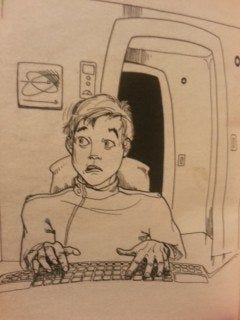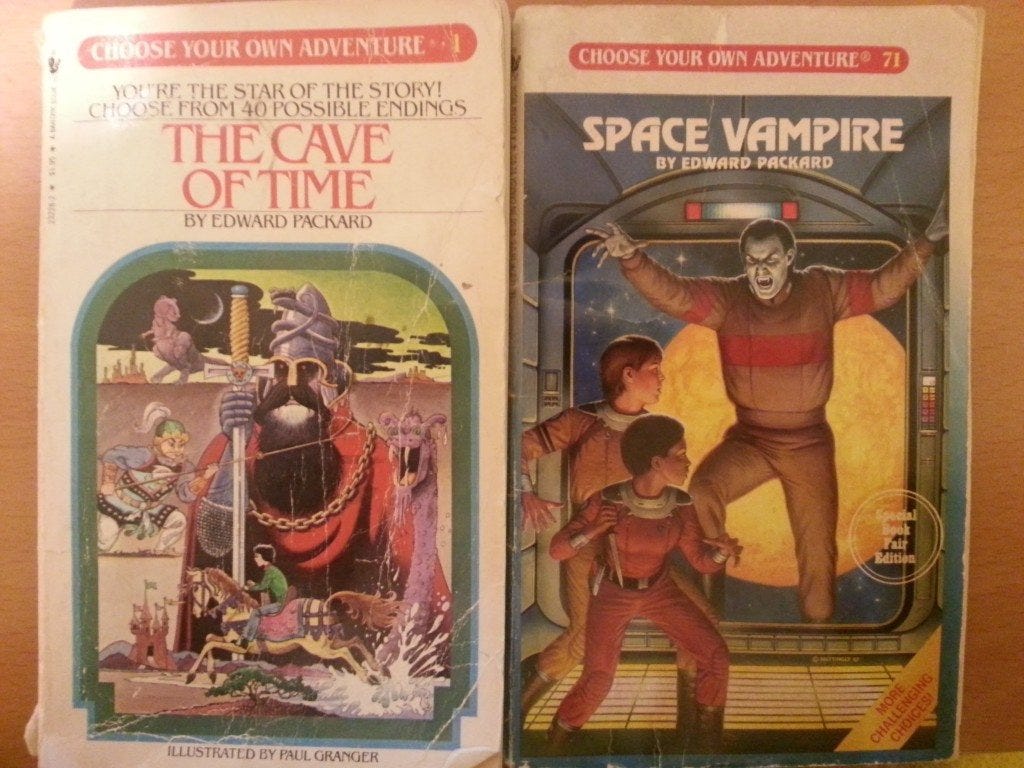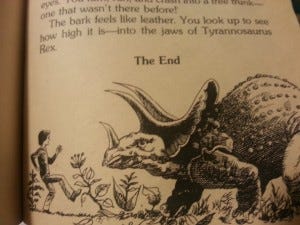Choosing Your Own Adventures
One of my favorite parts of writing happens when I'm not writing. You know, those moments during the day when you're thinking about, maybe even dreaming about, the story or the characters in your work in progress. I love brainstorming, whether it's my own book or someone else's work, because there's a sense of play to it; you aren't committing anything to paper yet, so it doesn't take much work. (It also may not feel like work, so you might worry you're just procrastinating, but trust me, it's useful.) You can feel free to be as goofy or wild as you want--you're just throwing things against the wall to see what sticks. And it's cool because you're working on your book anywhere and everywhere: in the shower, walking your dog, on line at the bank, riding the train, reading other books, watching TV, in meetings at work. A little part of my brain never stops thinking about my novel.

I can't speak to every writer's experience, but this is how my imagination works. The more I think about the story, the more ideas I have. Often, my subconscious mind makes connections that needed days, weeks, or months to develop. Initially, I avoided outlining because I wanted to give myself as much of that flexibility as possible to discover the story and let it develop organically, but I've since realized that outlining can also get you thinking about the whole thing much earlier, and there's nothing limiting about it--it's just one path, and you can take the story in different directions any time a better idea presents itself. I like research for the same reason; all that reading feeds me more ideas and opens up new possibilities. So this book I'm working on... It started with a lot of brainstorming and outlining, then I started drafting it and inevitably veered off from the outline a bit. I got some great notes from my editors, and I just completed the first major revision—a few hours ago. As I tried to re-imagine the plot and characters and come up with a better ending, the whole process reminded me of something very old, something from my childhood: Choose Your Own Adventure.

You've probably seen a Choose Your Own Adventure (CYOA) book at some point, or one of the many similar series borrowing the concept. They're basically stories that present many decisions for the reader, allowing you to have some control over the story. "If you decide to start back home, turn to page 4. If you decide to wait, turn to page 5." There are usually only a few "good" endings and many bad, boring, or mediocre ones. When I read them as a kid, I always wanted to make sure I had taken every choice, explored every path, seen every ending. And I realized recently that all those CYOA books had been training me from early on to be a creative writer. The way I plot out a book is really similar to how these books are set up. At each major plot point, I have to decide what the characters are going to do next, and what impact that will have on the story farther down the line. I'm constantly coming up with various scenarios and playing them out, discarding them, picking up another thread, trying something else. Working with Scrivener makes it even easier, and more fluid, because I can rewrite a scene several different ways, then revert to a previous version if none of them fit. I can move the scene or cut it entirely. I'm trying to see every path, and test every ending—all in search of the one "good" ending for the book. Of course, it's preferable if I don't have to actually write every alternative first.

It's probably no wonder that I like stories about parallel universes so much. In some ways, each draft of my book is an alternate version of itself. (Sometimes I can't even keep them straight anymore. Was that in the final draft, or did I cut it?) Fun fact: In the original ending of Fair Coin, Ephraim stops Nate from using the coin to facilitate a shooting spree at their high school. What?! Yeah. It was super dark, and very wrong for the book, and I knew it while I was writing it. (On the other hand, it was also my first novel, so.) But I often have to take some of those wrong turns and try out the "bad" endings — sometimes just to get to the end — before I can figure out what the real ending is supposed to be. Making mistakes doesn't make you a bad writer, it just means you have to turn to a new page and try again. Revision is like getting to erase those unsuccessful outcomes and make a better decision. Did you read Choose Your Own Adventure? Which was your favorite? And how do you plot out your endings?
The End







